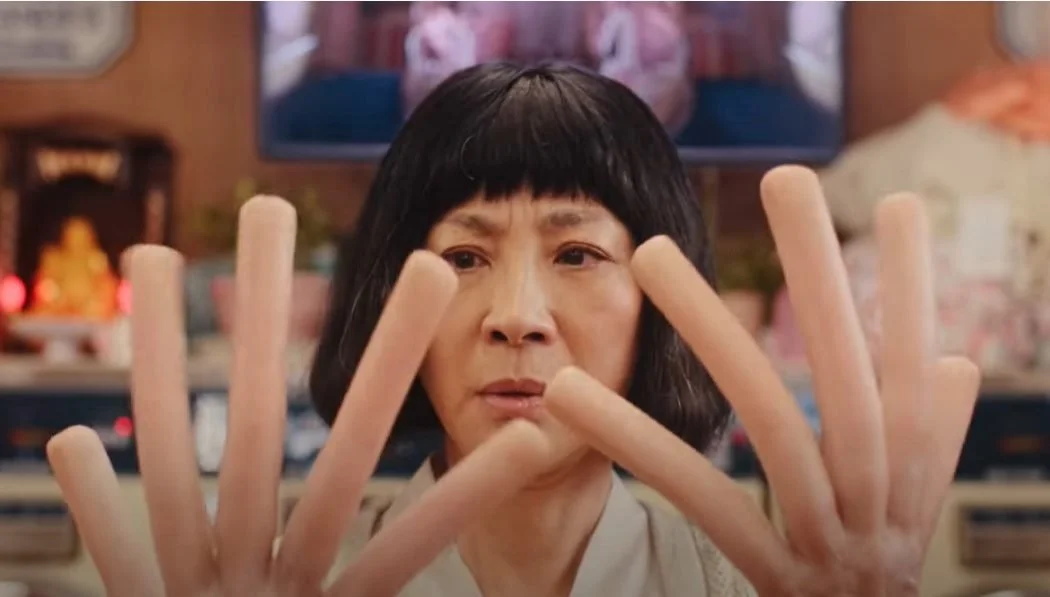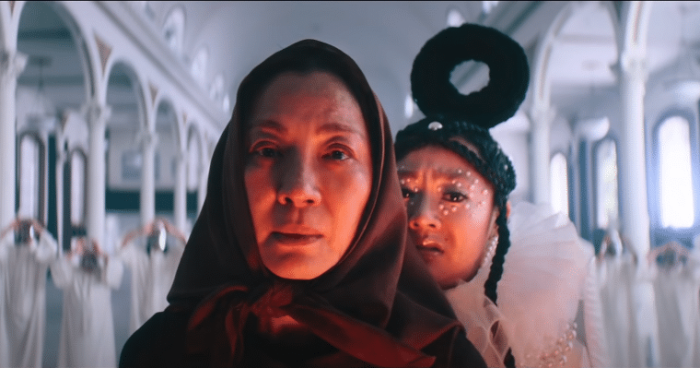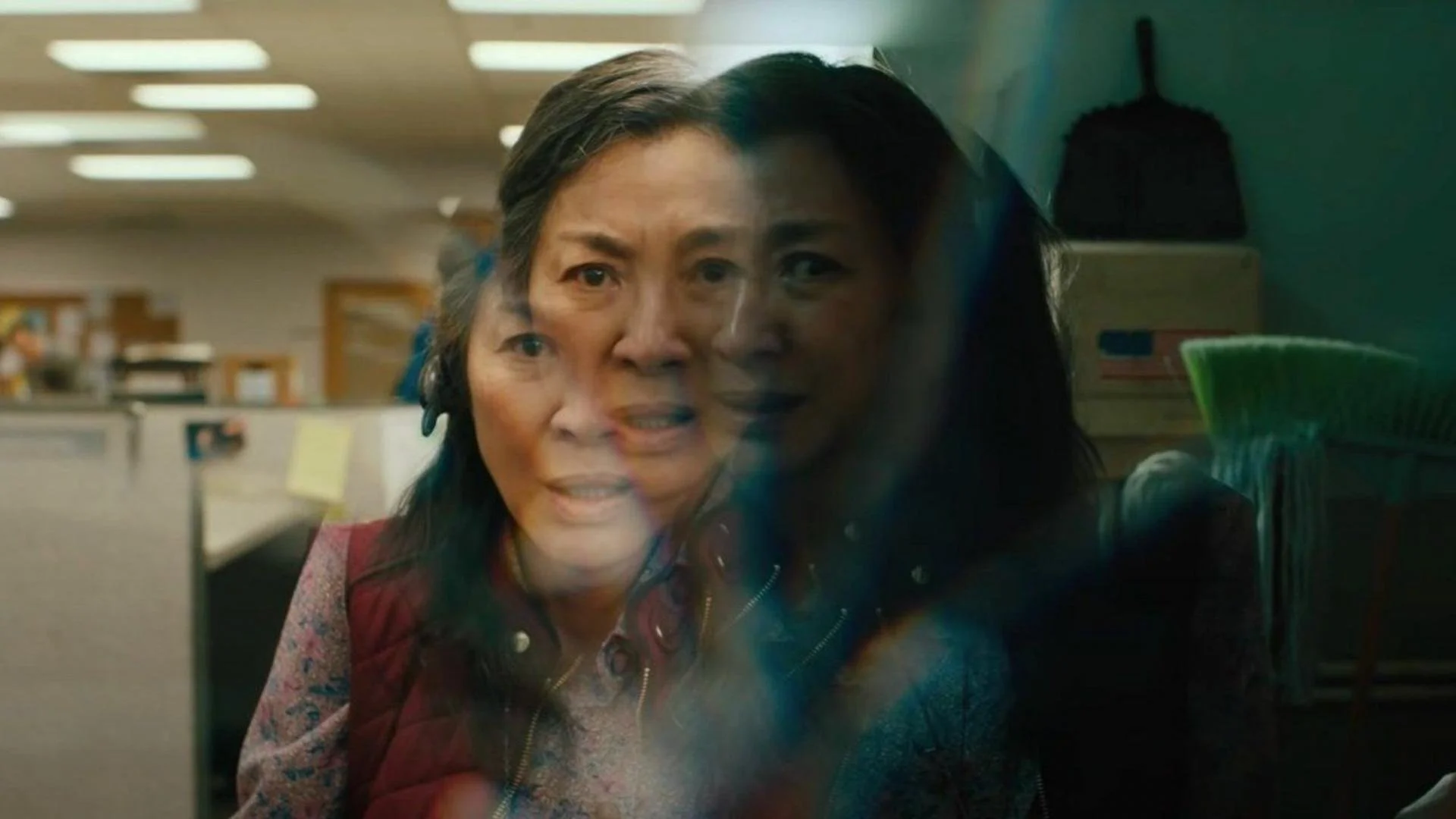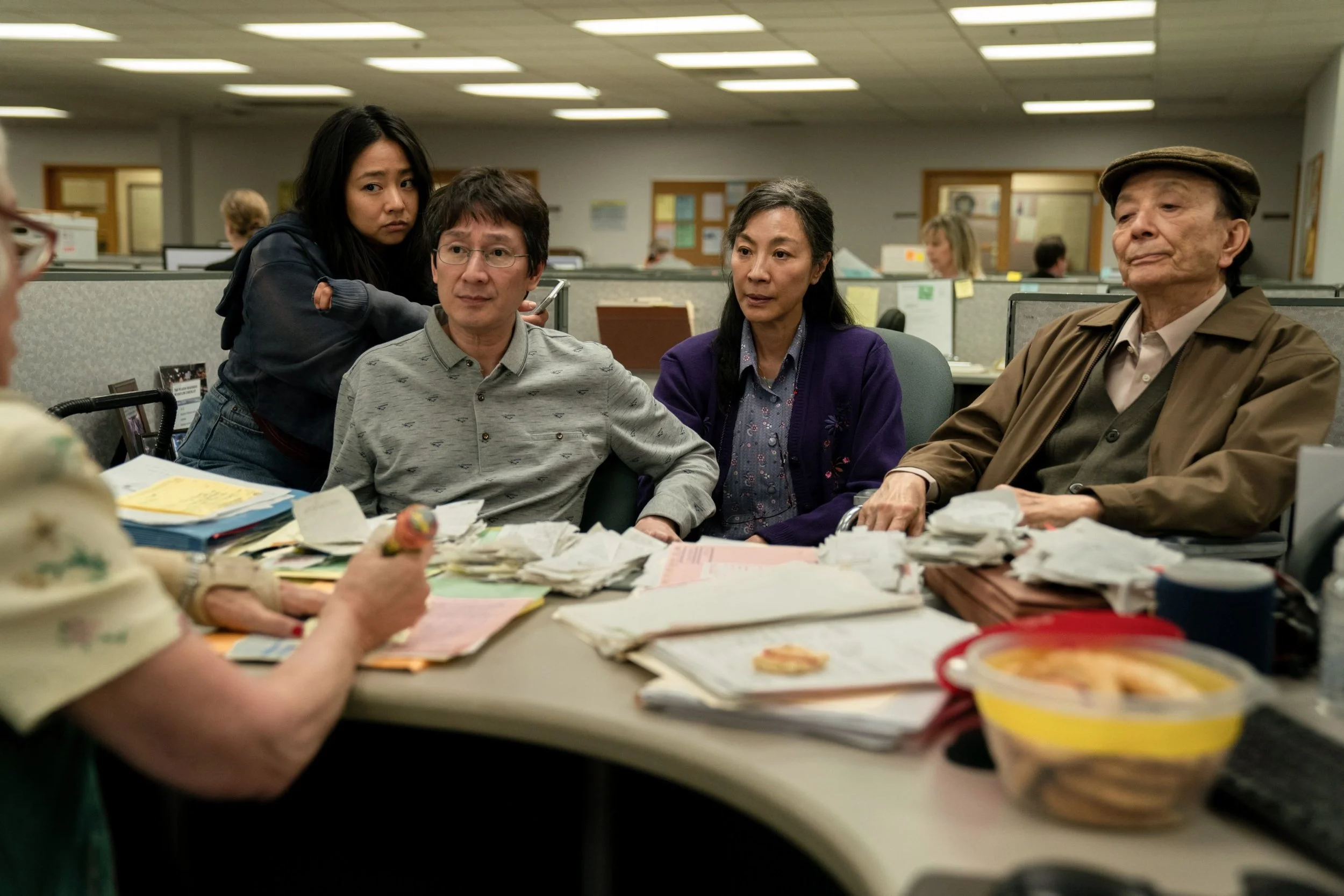Everything Everywhere All At Once (dir. The Daniels, 2022)- Review
In 1837, a 23-year-old man named Hong Huoxiu had a nervous breakdown after failing his imperial civil service exams for the third time in a row. In the ensuing delirium, Hong had a series of visions revealing that he was the Chinese son of ‘Yeshua’: a recently imported God in whose celestial family Hong swiftly recognized himself as the younger brother of Jesus. This apparently bizarre and nonsensical turn of events would change the course of China’s history, as Hong went on to became a fundamentalist Christian warlord. Baptising his troops en masse with a fire hose, Hong embarked on a messianic rampage culminating in the 14-year Taiping Rebellion, which nearly toppled the Qing dynasty and claimed an estimated 20 million lives. China eventually shrugged and moved on. Hong is not the dominant figure of its national history, nor is he particularly well-known in the West: just another in an unfathomably long line of violent, mystical revolutionaries stretching back millennia.
In this context, a Chinese-American laundromat owner doing martial arts in a universe where everyone has hot dogs for fingers doesn’t seem so outré.
Everything Everywhere All At Once nails its depiction of a perennial and thorny subject: identity in a changing world. Violent revolt is often a response through the awful realisation that one might be a lot less clever, powerful and important than previously supposed. This logic- which compels people to reimpose a new worldview on their surroundings, by any means necessary- runs through Hong’s Heavenly Kingdom, the various wars that shaped Europe, the Capitol storming and so forth. In the West, this knee-jerk reaction to one’s own ignorance and insignificance has become the default, a natural and correct instinct to conquer the unknown by rewriting it, or fixing it, through some mission or quest.
Everything Everywhere offers the first really successful, mainstream vision of an alternative. It sounds near-impossible to make a movie about meaningless identity with an explicit focus on- grit your teeth- race, gender, and class. But that’s exactly how its universalism comes through.
Everything Everywhere stars Michelle Yeoh as Evelyn Wang, a frazzled shell of a woman whose American Dream has fallen apart: her milksop husband Waymond (Ke Huy Quan) wants a divorce, her daughter Joy (Stephanie Hsu) is a lesbian, and her laundromat is under threat from tyrannical IRS auditor Deirdre (Jamie Lee Curtis). Evelyn’s post-midlife crisis suddenly becomes the least of her problems when her husband is temporarily possessed by ‘Alpha Waymond’- a Waymond from an alternate reality where Evelyn discovered not only the multiverse, but a way to ‘verse jump’ around it, picking up the skills and knowledge of her other parallel selves. Laundromat Evelyn, it transpires, is the worst version in existence. On top of this unwelcome revelation, she learns that an evil, godlike entity named Jobu Tupaki is trying to destroy the multiverse, and only Evelyn- some Evelyn, at least- stands a chance of stopping her. And thus the movie launches into a kaleidoscope of parallel universes, punching through them with the trademark absurdist, violent camp of The Daniels’ breakout music video: Turn Down For What, starring Daniel Kwan- one half of the directing duo- as a man smashing up various buildings with the superhuman humping force of his junk.
Everything Everywhere has won over audiences in much the same way that Turn Down For What did, ten years previously: baffled, delighted, repulsed, viewers can’t help but look for meaning in an unsolvable torrent of stimulation. Only after exploring every single possible solution to the chaos, every way of ‘fixing it’, and coming up short, can we begin to understand ourselves in relation to it.
The directors originally sought Jackie Chan for the starring role, and thank God they didn’t get him. The movie lives and dies in the perspective of a beleaguered Asian mom. Evelyn is utterly powerless, in a way which neatly encapsulates, and answers, the whole minefield of issues around representation: she’s not powerless because she’s a 60 year old Asian woman. She just happens to be the only powerless version of that 60 year old Asian woman. With no ability to even engage with the multiverse, let alone inflict violence on it, Evelyn must patch up her shattered worldview and identity through other means.
This philosophy emerges from conflict not just with the movie’s literal villain, but with the real threat it portrays: the knowledge that we’re all "small, stupid humans”, waiting for the next discovery that “will make us feel like even smaller pieces of shit”. This terror is more present than ever, and Marvel has built a business off stoking and soothing it- most recently, and literally, with Dr Strange in the Multiverse of Madness.
Everything Everywhere and Dr Strange distil two contrasting responses to the realisation of our mind-boggling insignificance. It’s no coincidence that the former has been hailed for its representations of Asian experience, while the latter had to drop Tilda Swinton’s role as an ancient Tibetan sage. Like any good religion, Marvel acknowledges the infinite, all-consuming power of the multiverse in name only- in order to impose its own doctrine more forcefully. Unlike their predecessors in Christianity, who were obliged to fend off breakaway sects and rival churches with the ineffectual threat of gory torture, Marvel have copyright law. Everything Everywhere, on the other hand, speaks to a long-established familiarity with the bizarre and inconceivable, evident in the Taoist and Buddhist thought against which Hong Xiuquan rebelled so vehemently two hundred years ago.





